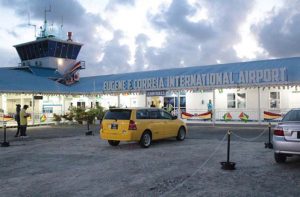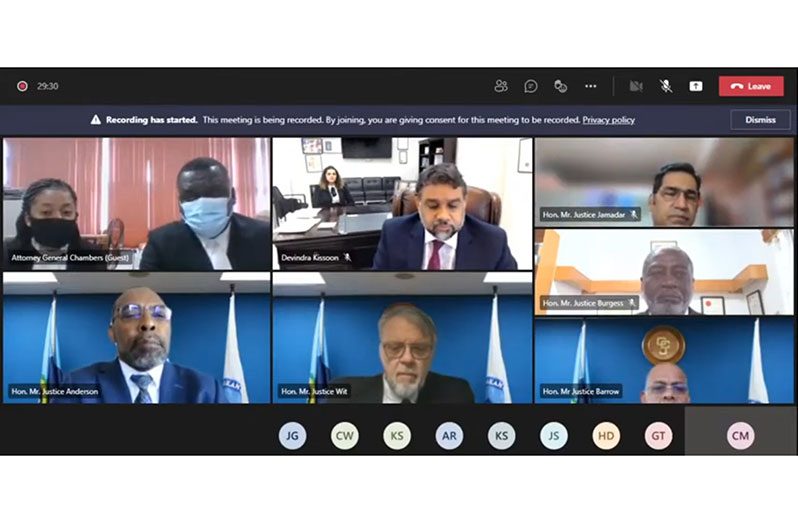THE Caribbean Court of Justice (CCJ), on Tuesday, dismissed the appeal filed by several domestic airline operators to challenge the 2016 renaming of the Ogle airport.
Air Services Limited (ASL), Domestic Airways, Hinterland Aviation, Hopkinson Mining Aviation, Jags Aviation, Oxford Aviation, Phoenix Airways, Roraima Airways, Wings Aviation and the National Air Transport Association (NATA), an association formed by them, had managed to secure an injunction to prevent the renaming of the airport. However, the matter was subsequently discharged.
The aerodrome, was, on May 9, 2016, renamed the Eugene F. Correia International Airport by then President David Granger. Legal challenges filed by the operators in the High Court and the Court of Appeal were unsuccessful and resulted in their resort to the Trinidad-based CCJ, which is Guyana’s final appeal court.
The case at the CCJ was heard virtually by a five-member panel comprising Justices Peter Jamadar, Jacob Wit, Winston Anderson, Denys Barrow and Andrew Burgess. The operators/applicants were represented by Attorneys-at-law Devindra Kissoon and Natasha Vieria, while Solicitor-General, Nigel Hawke, appeared for the Attorney General, who is a named respondent in the case.
Kissoon had contended that the changing of the Ogle International Airport (OIA)’s name was unfair and irrational, because proper consultations were not held with his clients.

Justice Barrow, in delivering the judgment of the court, found that the duty to consult in this case related to the question of whether the proposed new name should be approved or not. He noted that the appellants were able to discuss the name change, among other issues, at a meeting with the minister on November 18, 2015.
Following that meeting, they provided a brief to the minister of all the issues discussed, including the name change. In that brief, the submission in relation to the renaming required nothing more than to ‘Leave Ogle Airport name as it is’.
There was nothing provided by the appellants that suggested that the minister would not have understood the nature and substance of their objection. The court found that the minister took their concerns so seriously that he commissioned a legal review of the lease.
The court thus held that there was no need for further consultations as advanced by the appellants. The appellants disagreed with the merits of the minister’s decision, for which the law gives no remedy.
In a separate concurring opinion, Justice Jamadar emphasised that the duty of the minister to consult is rooted in the Constitution of Guyana, which is distinct from any procedural rights based on other legal sources. The court also emphasised the importance of meaningful consultations by public authorities with relevant stakeholders. The OAI was incorporated in 2000, with five equal shareholders, each owning 20 per cent of the shares, and each being a director of the company. Since then, the Correia Group of Companies has secured control of more than half of the shares and has a monopoly over fuel and the leasing of lands for domestic airspace.
By way of letters in 2015, the airline services complained to former Minister of Public Infrastructure, David Patterson, about the issues surrounding the changing of the airport’s name, and its likely impact on their operations. President Granger had also written to Patterson on the subject, with the aim of having the issues resolved.
Kissoon had also submitted that his clients should have been consulted before the changing of the name, and on other issues stemming from the said problem.
However, this argument did not sit well with the Solicitor-General, who submitted that there were proper consultations. According to him, then subject minister, David Patterson had acted, based on a letter from the OAI’s Board of Directors, which stated that there was a unanimous decision to change the name. Hawke contended that on the face of the evidence, the issue stems from a private grievance and the applicants are attempting to use public law procedures to address the private grievances.



.jpg)








